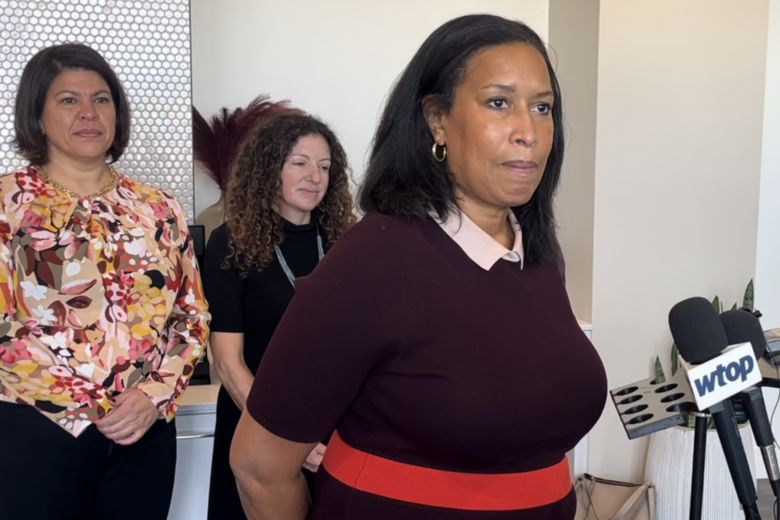This story is part of WTOP’s ongoing series, Trump Impact, which looks at how the new administration could change the D.C. region.

The D.C. region will be hearing more and more about the world’s richest man, Elon Musk, in the coming months as he leads a task force that will make recommendations to President-elect Donald Trump on how to reshape the federal workforce.
At least in some areas, Musk and D.C. Mayor Muriel Bowser seem to agree.
Musk will lead a task force called the Department of Government Efficiency alongside Vivek Ramaswamy. The group posted a statement on social media late Wednesday saying federal agencies are using, on average, just 12% of the space in their D.C. headquarters.
“Why are American taxpayer dollars being spent to maintain empty buildings?” the statement asked.
- Maryland lawmakers warn of ‘full-fledged assault’ on federal workers
- Cuts in Virginia would stretch beyond federal employees
When asked whether Bowser had any advice for the group related to that topic, the D.C. mayor said, “We think the federal government needs a centralized remote work policy.”
“Our message about that is the same as it’s been for the last almost four years,” Bowser said. “We think that government workers should be in their offices more than they’re on telework.”
When asked whether Bowser would be willing to work with the task force if it reached out to her, she responded by saying, “I absolutely will share my ideas.”
Plans for the Department of Government Efficiency are still coming into focus.
The group put out a call for “small-government revolutionaries willing to work 80+ hours per week on unglamorous cost-cutting.”
Applicants are encouraged to submit their resumes through X, the social media company that Musk owns.
In an opinion piece in The Wall Street Journal, Musk and Ramaswamy said that they want to “identify the minimum number of employees required at an agency for it to perform its constitutionally permissible and statutorily mandated functions,” leading to “mass head-count reductions across the federal bureaucracy.”
Some employees could choose “voluntary severance payments to facilitate a graceful exit,” the pair wrote.
Others would be encouraged to quit by mandating that they show up at the office five days a week, ending the pandemic-era flexibility that remote work provides.
The requirement “would result in a wave of voluntary terminations that we welcome,” Musk and Ramaswamy said.
The Associated Press contributed to this report.
Get breaking news and daily headlines delivered to your email inbox by signing up here.
© 2024 WTOP. All Rights Reserved. This website is not intended for users located within the European Economic Area.









